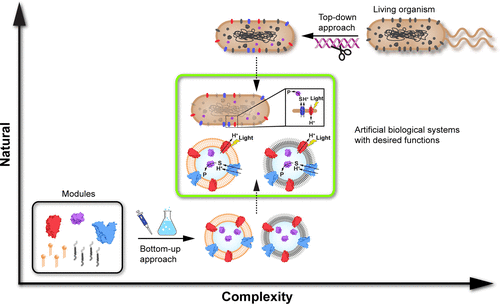Synthetic Biology: Engineering Life at the Molecular Level
What is Synthetic Biology?
Synthetic biology is an interdisciplinary field that combines principles from biology, engineering, and computer science to design and construct new biological systems or redesign existing ones. It involves the manipulation of genetic material and the creation of artificial biological components, such as enzymes, genetic circuits, and metabolic pathways, to achieve specific functions or produce desired compounds.

Key Principles of Synthetic Biology
Synthetic biology is guided by several key principles that enable the rational design and construction of biological systems:
- Modularity: Biological components are treated as modular parts that can be combined in various ways to create complex systems with predictable behaviors.
- Standardization: Synthetic biologists aim to develop standardized genetic parts and assembly methods to facilitate the design and construction of biological systems, similar to the standardized parts used in engineering.
- Abstraction: Complex biological systems are broken down into simpler, hierarchical levels of abstraction, allowing for the design and analysis of individual components and their interactions.
- Predictability: Computational modeling and simulation tools are used to predict the behavior of engineered biological systems, enabling the rational design and optimization of genetic circuits and metabolic pathways.
Applications of Synthetic Biology
Synthetic biology has a wide range of potential applications across various fields, including:
Biomanufacturing
Synthetic biology enables the production of valuable compounds, such as drugs, chemicals, and materials, using engineered microorganisms. By optimizing metabolic pathways and introducing novel enzymes, researchers can create microbial cell factories that efficiently produce desired products from renewable feedstocks.
Biomedical Applications
Synthetic biology holds promise for developing new therapies and diagnostic tools. Engineered biological systems can be used to produce therapeutic proteins, deliver targeted drugs, or detect disease biomarkers. Additionally, synthetic gene circuits can be designed to sense and respond to specific cellular signals, enabling the development of smart therapeutics and diagnostics.
Environmental Applications
Synthetic biology can be applied to address environmental challenges, such as bioremediation and sustainable production. Engineered microorganisms can be designed to degrade pollutants, capture carbon dioxide, or produce biodegradable plastics. Moreover, synthetic biology can contribute to the development of renewable energy sources, such as biofuels and microbial fuel cells.
Biosensors and Biocomputing
Synthetic biology enables the construction of biological sensors and computing devices. Engineered genetic circuits can be designed to detect specific molecules or environmental conditions, generating measurable outputs such as fluorescence or electrical signals. These biosensors can be used for environmental monitoring, disease diagnosis, or drug screening. Additionally, synthetic biology explores the potential of using biological components for information processing and computation.
Tools and Techniques in Synthetic Biology
Synthetic biology relies on a variety of tools and techniques to design, construct, and analyze biological systems:
DNA Synthesis and Assembly
Advances in DNA synthesis technologies have enabled the rapid and cost-effective production of synthetic DNA fragments. These fragments can be assembled into larger genetic constructs using various methods, such as Gibson assembly, Golden Gate assembly, or yeast assembly. DNA synthesis and assembly techniques allow for the creation of novel genetic circuits and the optimization of existing ones.
Genome Editing
Genome editing tools, such as CRISPR-Cas systems, have revolutionized the field of synthetic biology. These tools enable precise and efficient modification of genomes, allowing researchers to introduce or remove genetic elements, create gene knockouts, or introduce specific mutations. Genome editing facilitates the engineering of organisms with desired traits and the study of gene function.
Computational Tools and Modeling
Computational tools and mathematical models play a crucial role in the design and analysis of synthetic biological systems. Computer-aided design (CAD) software allows for the virtual construction and simulation of genetic circuits and metabolic pathways. These tools help predict the behavior of engineered systems, optimize their performance, and guide experimental design. Additionally, machine learning and artificial intelligence techniques are being applied to accelerate the design and discovery of novel biological systems.
Challenges and Ethical Considerations
While synthetic biology holds immense potential, it also raises various challenges and ethical considerations. One of the main challenges is the complexity and unpredictability of biological systems. Despite advances in computational modeling and design principles, the behavior of engineered biological systems can be difficult to predict and control, especially in complex environments.
Synthetic biology also raises ethical and societal concerns, such as the potential for unintended environmental impacts, the misuse of engineered organisms for harmful purposes, and the equitable distribution of benefits derived from synthetic biology applications. Addressing these challenges requires ongoing dialogue between scientists, policymakers, and the public to ensure responsible research and development in the field.
Further Reading
Essays in Biochemistry, Principles of synthetic biology
Chemical Reviews, Synthetic Biology: Bottom-Up Assembly of Molecular Systems
Frontiers in Bioengineering and Biotechnology, Future Trends in Synthetic Biology
